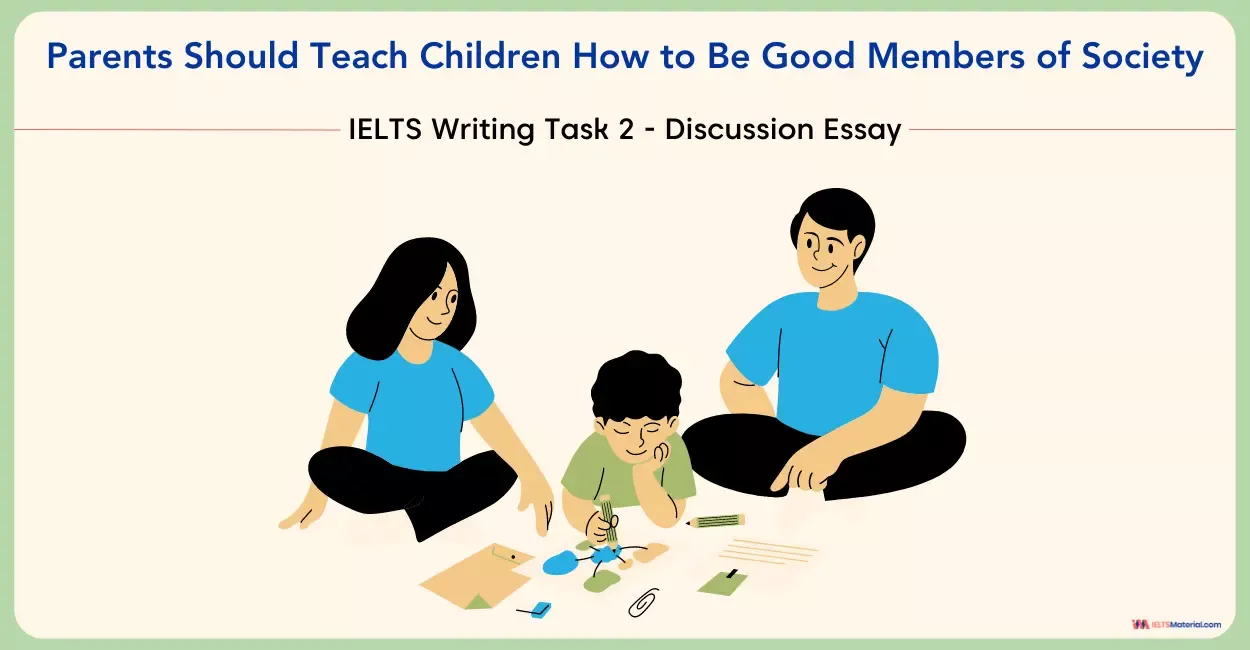IELTS Direct Question Essays – Structure, Questions, Samples & Tips
The article explains how to write a Direct Question Essay for IELTS Writing Task 2, outlining its structure and tips for success. It includes examples and emphasizes understanding the question, clear organization, and supporting arguments with examples.
Table of Contents
Limited-Time Offer : Access a FREE 10-Day IELTS Study Plan!
The IELTS Writing Task 2 has an essay type known as the 'Direct Question Essay', which is a crucial component of the IELTS exam. It evaluates your ability to express your ideas, analyze a given topic, and provide a clear, well-structured response.
In this comprehensive guide, we will explore the structure of IELTS Writing Task 2: Direct Question Essays, delve into essential pointers, provide ten valuable tips to ace this task and furnish you with five sample questions and answers to boost your preparation.
Structure of a Direct Question Essay
A Direct Question Essay typically follows a specific format:
Introduction
Body Paragraph 1
Body Paragraph 2
Conclusion
|
Question 1
| You should spend about 40 minutes on this task.
Some people argue that schools should focus more on practical skills like cooking, budgeting, and home repair. How will this benefit one? You should write at least 250 words for each of the answers. |
Answer
I agree that schools should place a greater emphasis on practical life skills. While traditional subjects are essential, practical skills like cooking, budgeting, and home repair equip students for real-life challenges. For instance, teaching basic culinary skills can promote healthier eating habits, reducing the prevalence of diet-related health issues.
Furthermore, budgeting knowledge empowers individuals to manage their finances effectively, reducing the risk of falling into debt. The ability to handle basic home repairs fosters independence and self-reliance, which are valuable qualities in adulthood.
By incorporating practical skills into the curriculum, schools prepare students for the responsibilities they will face in their daily lives. While academic knowledge is important, it is equally crucial to equip individuals with the tools they need to thrive in the real world. Thus, I firmly believe that schools should allocate more resources to teach practical life skills alongside traditional subjects, ensuring a holistic education that sets students on the path to success.
Question 2
| You should spend about 40 minutes on this task.
In some countries, there is a growing trend of banning smoking in public places. What should be the approach to stop this? You should write at least 250 words for each of the answers. |
Answer
Banning smoking in public places offers numerous advantages. Firstly, it significantly improves public health by reducing exposure to harmful secondhand smoke. Non-smokers, including children and those with respiratory conditions, benefit from cleaner air, leading to a lower incidence of smoking-related health issues.
Secondly, such bans encourage individuals to quit smoking or reduce their consumption. When smoking is restricted in public spaces, smokers may be more inclined to quit as the inconvenience of finding a designated smoking area becomes apparent. This, in turn, decreases the overall demand for tobacco products and contributes to public health.
However, banning smoking in public places can lead to potential disadvantages. Businesses reliant on tobacco sales may experience a decline in revenue, potentially leading to layoffs or closures. Additionally, some smokers may resist the bans, leading to enforcement challenges and potential conflicts in public spaces.
In conclusion, the advantages of banning smoking in public places, such as improved public health and reduced smoking rates, outweigh the disadvantages. While businesses may face challenges, the long-term benefits to society as a whole are substantial.
Key Pointers for Direct Question Essays
- Understand the Question: Read the question carefully to grasp its requirements and focus. Identify keywords that dictate the scope of your response.
- Plan Your Essay: Spend a few minutes brainstorming and outlining your essay. Organize your thoughts and main ideas. A well-structured essay flows more naturally.
- Clarity and Coherence: Use clear and concise language. Ensure that your essay is easy to follow and logically organized. Employ appropriate transitions between sentences and paragraphs.
- Stay on Topic: Avoid straying from the main question. Irrelevant information can reduce the clarity of your essay and affect your score.
- Word Count: Adhere to the word count requirement. Going over or under the limit can result in point deductions.
- Vocabulary and Grammar: Showcase a wide IELTS Vocabulary range and accurate grammar. Simple and complex sentences should be used appropriately to enhance the quality of your writing.
- Examples and Details: Support your ideas with relevant examples, facts, and details. This strengthens your arguments and demonstrates a deep understanding of the topic.
- Counter Arguments: Address counterarguments when relevant. This shows your ability to consider different perspectives and strengthens your position.
- Time Management: Allocate time wisely. Ensure you have enough time to review and edit your essay before submission.
- Revision: Always review and edit your essay. Look for errors in spelling, IELTS Grammar, and clarity. A well-edited essay leaves a positive impression.
Find more more Direct Question Essays in the IELTS practice tests.
Direct Question Essay: A Skill to Learn!
In conclusion, mastering the art of writing Direct Question Essays is achievable with practice, a clear understanding of the format, and attention to key pointers. By following the structure, incorporating the tips provided, analyzing the sample questions and answers and taking more IELTS Writing practice tests, you can significantly enhance your performance in the IELTS Writing Task 2. So, start practicing and make your writing shine on test day. Good luck!
Here are the 10 examples for the Direct question essay
Also Check:
Frequently Asked Questions
How will you write an introduction in the IELTS Direct Question Essay?
What are the common errors the examinees make in the IELTS Direct Question Essay?
How can you score high marks for task achievement in the IELTS Direct Question Essay?
Can I use only one body paragraph in my IELTS Direct Question Essay?
Are IELTS Direct Question Essay and IELTS Double Question Essay the same?
Practice IELTS Writing Task 2 based on Essay types
Start Preparing for IELTS: Get Your 10-Day Study Plan Today!
Explore other Direct Question Essays
Recent Articles


Raajdeep Saha
Kasturika Samanta

Akanksha Tripathi







Post your Comments
1 Comment